Indigenous Governance Database
water issues
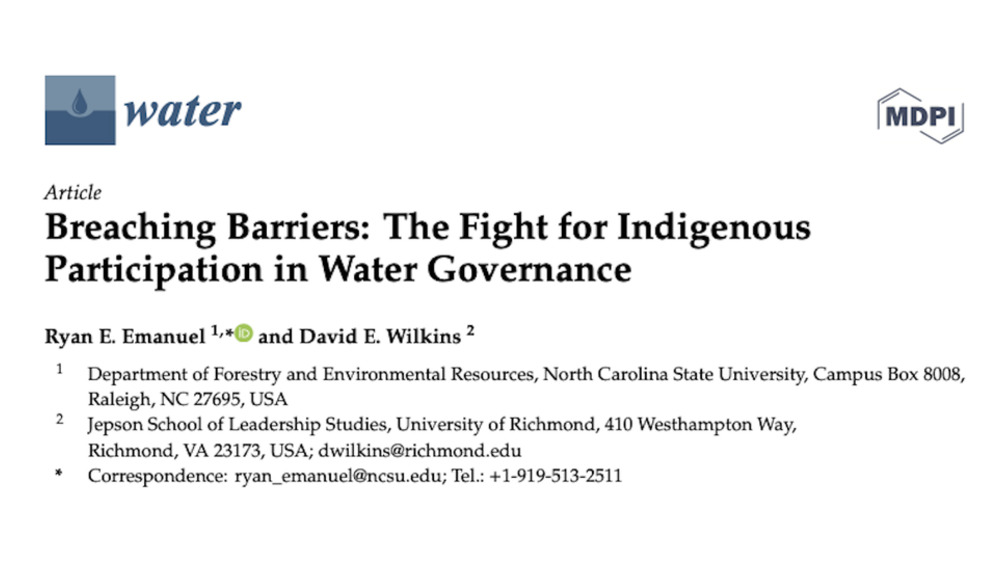
Breaching Barriers: The Fight for Indigenous Participation in Water Governance
Indigenous peoples worldwide face barriers to participation in water governance, which includes planning and permitting of infrastructure that may affect water in their territories. In the United States, the extent to which Indigenous voices are heard—let alone incorporated into decision-making—…
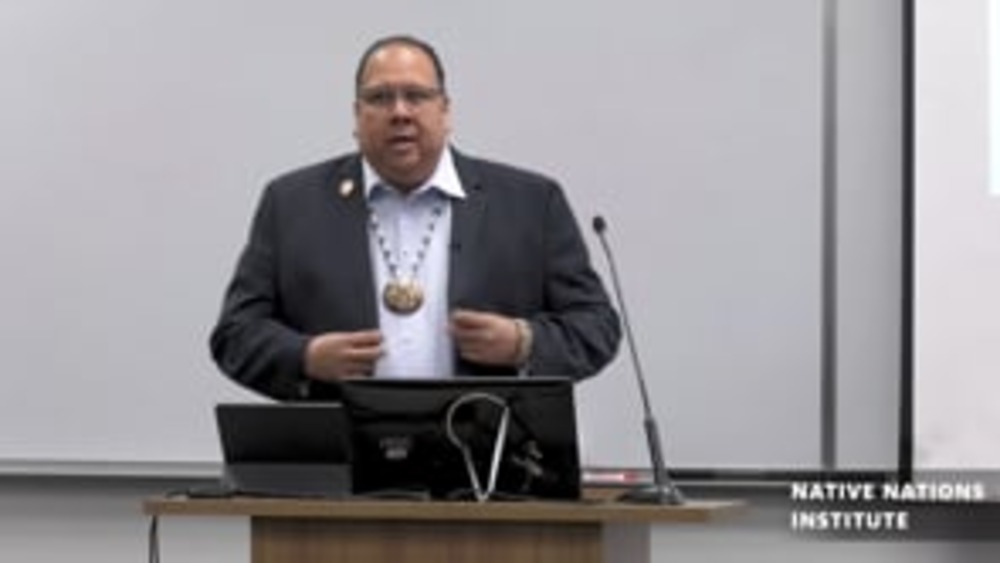
Governor Stephen Roe Lewis Distinguished Tribal Leader Lecture
Governor Stephen Roe Lewis of the Gila River Indian Community visited the University of Arizona to speak at January in Tucson: Distinguished Tribal Leader Lecture sponsored by the Native Nations Institute and held at the Indigenous Peoples Law & Policy program at James E. Rogers College of Law…
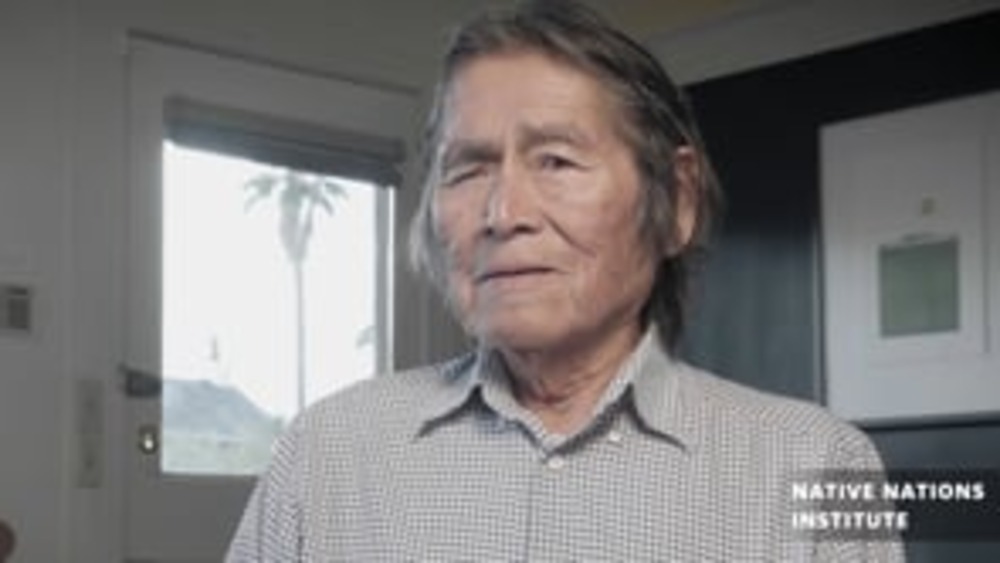
Vernon Masayesva: Self-Governance and Protecting Water
Former Tribal Chairman of the Hopi Nation and Executive Director of Black Mesa Trust, Vernon Masayesva relays his thoughts about advocating for self-governance and protection of water rights for Indigenous people. His pursuits in holding accountability of mining in Hopi territory has made Vernon…
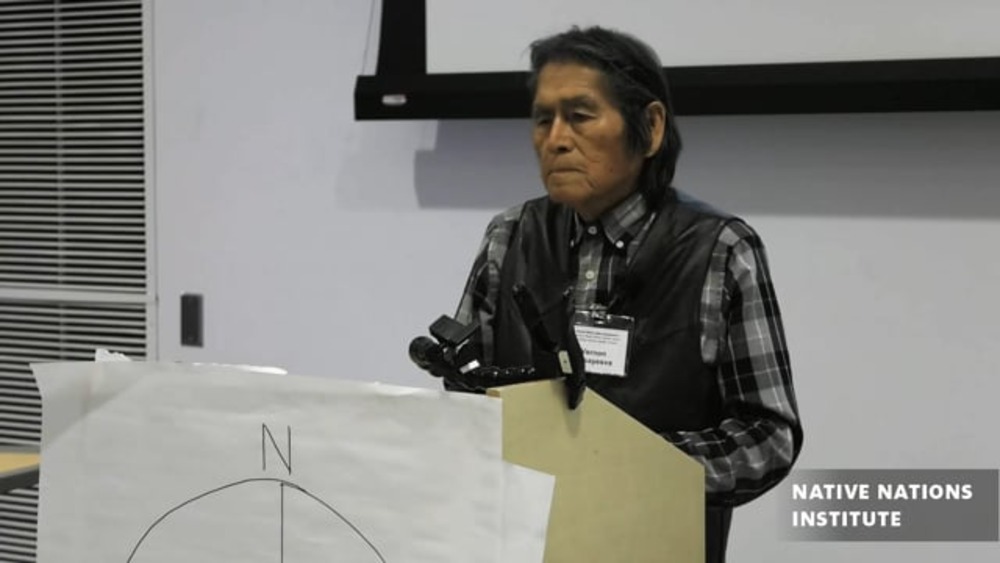
Vernon Masayesva Keynote: Water Ethics Symposium
Vernon Masayesva (Hopi) is the Executive Director of Black Mesa Trust and leading advocate for protecting water resources for the Hopi Nation. He's a Hopi Leader of the Coyote Clan and former Chairman of the Hopi Tribal Council from the village of Hotevilla who has worked for decades…
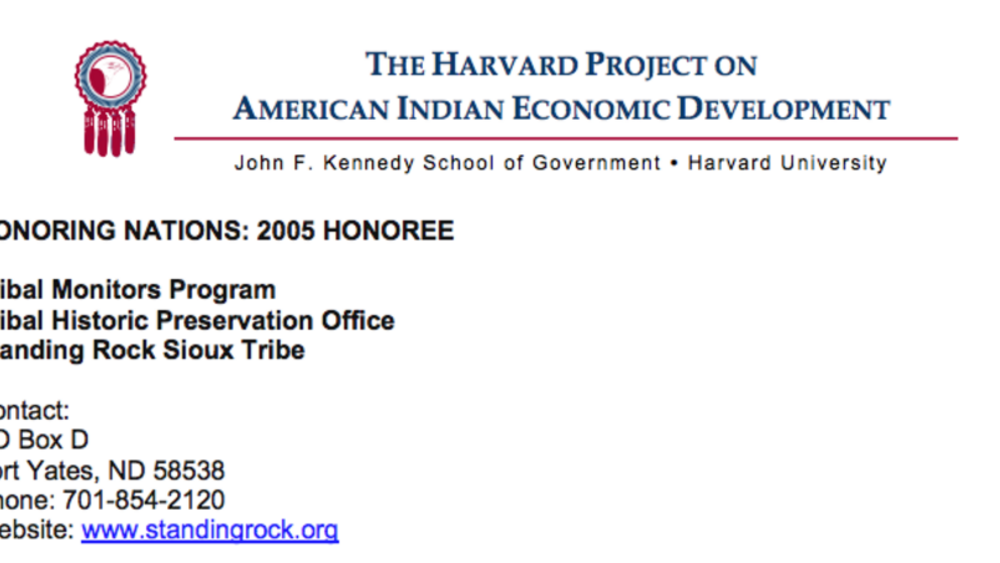
Standing Rock Sioux Tribal Monitors Program
The Standing Rock Sioux Tribe is located on 2.3 million acres of land in the central regions of North and South Dakota. Land issues rose to the forefront of tribal concerns after events such as allotment, lands flooding after the Army Corps of Engineers built a series of dams adjacent to the Tribe…
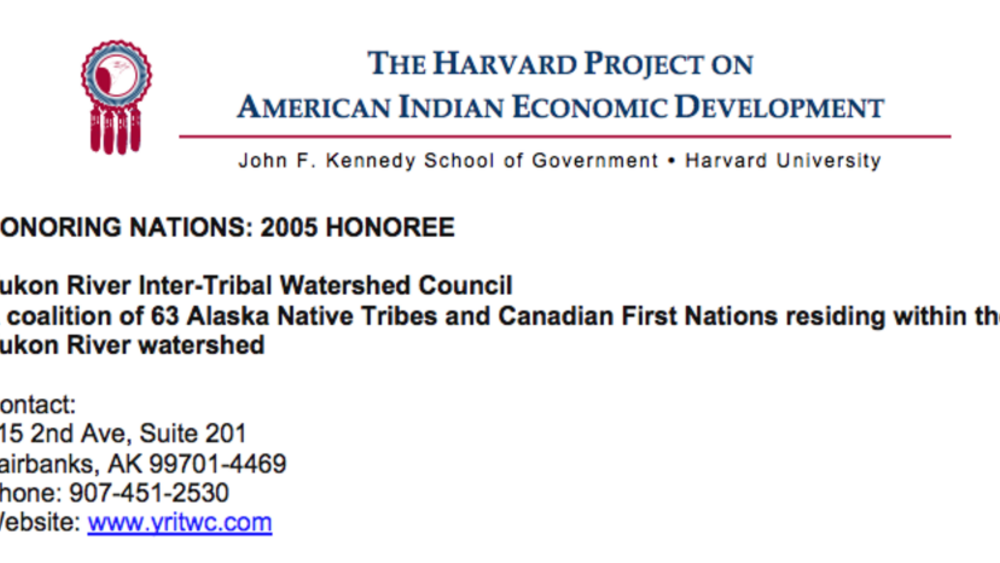
Yukon River Inter-Tribal Watershed Council
The Yukon River runs for 2,300 miles across the northwestern corner of North America. Many generations of Native people have drawn on its waters for food, drink, and other necessities. Recent development and changes in land use have affected the quality of Yukon River water. In 1997, chiefs and…
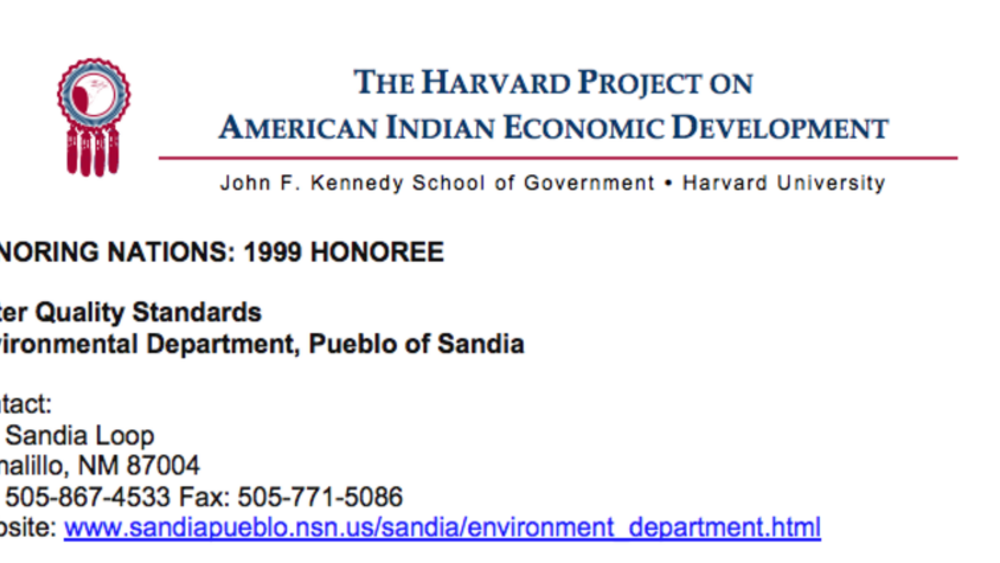
Water Quality Standards (Sandia)
Responding to the severe contamination of the Rio Grande River that threatens human health and ceremonial uses of the water, the Pueblo was awarded "treatment as state" status in 1990. Subsequently, the Pueblo developed and implemented US EPA approved water quality standards that give it control…
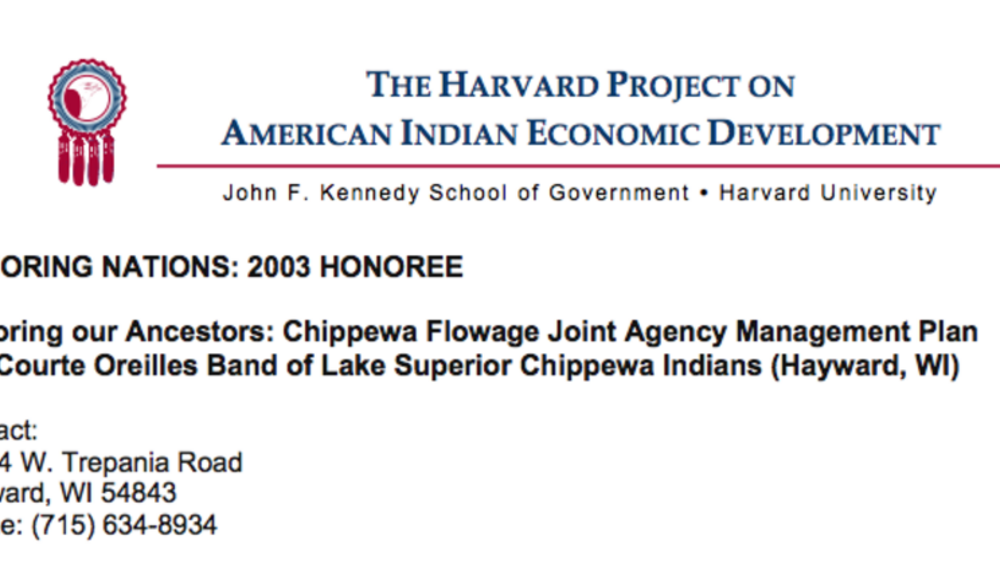
The Chippewa Flowage Joint Agency Management Plan
The Joint Agency Management Plan brings together three governments — the Lac Courte Oreilles Band, the State of Wisconsin, and the US Department of Agriculture Forest Service — to co-manage the Chippewa Flowage, a 15,300-acre reservoir created in 1923 that inundated a tribal village. Taking into…
Robyn Interpreter-The Nature of Tribal Water Rights
Robyn Interpreter, Water Attorney (Yavapai-Apache Nation and Pascua Yaqui Tribe), discusses how tribal attorneys have to negotiate all perspectives of tribal water rights in a contemporary climate.
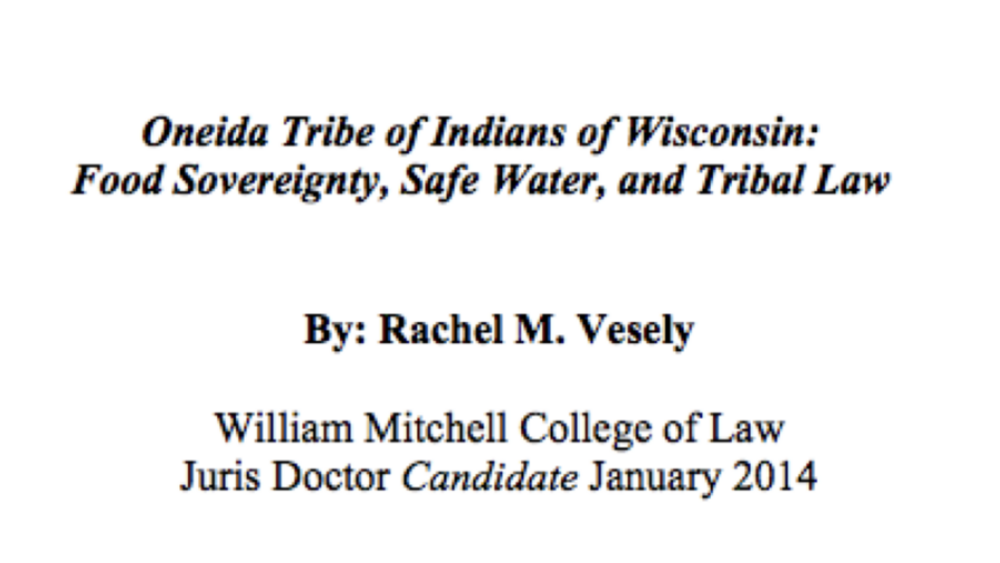
Oneida Tribe of Indians of Wisconsin: Food Sovereignty, Safe Water, and Tribal Law
An example of a Native American community working to achieve food sovereignty not only with physical nutrients but also with social elements is the Oneida Tribe of Indians of Wisconsin. This article analyzes the strengths of the Oneida Tribe's approach to preserving water quality and fishing…
